
Iran’s Non-Oil Exports to Iraq Rise by 45%
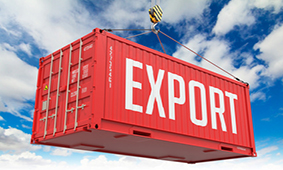
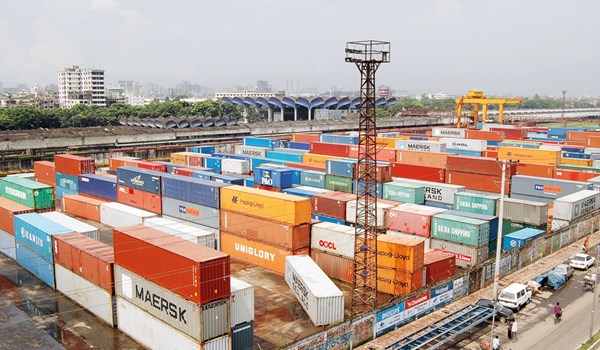
Iran’s exports value of non-oil commodities to neighboring Iraq in 11 months of the current Iranian calendar year (March 21 – Feb. 21) increased 45% as compared to the last year’s corresponding period.
Iran’s Commercial Attaché to Iraq Nasser Behzad made the remark on Wednesday and said, “$8.3 billion worth of non-oil commodities has been exported to neighboring Iraq since the beginning of the current year (started March 21, 2018).”
Iran’s export of non-oil goods to neighboring Iraq in this period showed 54% and 45% hike in terms of weight and value respectively, he added.
He put the value of each ton of Iran’s export goods to Iraqi market at 1.1 fold more than that of the products exported from Iran to other destinations.
Statistics showed that 38 percent of products have been exported to neighboring Iraq via borders of Iraqi Kurdistan region.
Behzad revealed the fourfold growth of organizing exhibitions for introducing Iranian products in Iraq and added, “Currently, 57 percent of Iranian products are exported to three countries of Iraq, China and the United Arab Emirates (UAE), with Iraq topping the list of Iran's biggest importers."
On February 10, Iranian Ambassador to Baghdad Iraj Masjedi said that efforts to sabotage Tehran-Baghdad relations are doomed to failure, reiterating that the two countries are poised to develop economic and trade relations.
Recalling Foreign Minister Mohammad Javad Zarif visit to Iraq as well as President Rouhani’s upcoming trip to the country, Masjedi said, “Currently, Iran-Iraq relations are at excellent level.”
The two countries’ economic and trade relations are growing and will continue in the interest of the two nations, he said.
Despite the enemies’ plots, Iran is celebrating the 40th founding anniversary of a government based on religious democracy in the world’s contemporary history, Masjedi said.
Most of the enemies mobilized all their facilities so that the Iranian nation could not see the 40th anniversary of the Islamic Revolution, but all their efforts failed, as Iran is taking steps on the path of independence and progress stronger than any time, he said.
Condemning US unilateral exit from the JCPOA, Masjedi said that the US president revealed that he does not value his commitments, as he not only violated his clear commitments under the JCPOA but also threatened other countries to follow the suit, but he will be humiliated like his predecessors.
A day before that, Secretary General of Iran-Iraq Joint Chamber of Commerce Hamid Hosseini said that Iran overtook neighboring Turkey in export of products to Iraq in 2018, adding that Turkey’s exports value of products to Iraq in 2018 was at $7.35 billion.
He added that in total, Turkey exported $154 billion worth of products in 2017, $8.3 billion worth of which was exported to Iraq.
Hosseini put the trade volume exchanged between Iran and Iraq in 2018 at $6.502 billion, so that Iran and Iraq accounted for $6.425 billion and $77 million respectively.
Iran's export of products to Iraq in the first nine months of the current Iranian year (March 21 – Dec. 21) hit $7.322 billion, showing a significant growth as compared to the same period last year, the secretary general concluded.
In a related front, on February 08, Iran and Iraq reached an agreement to extend exports of 1,200 megawatts of electricity to the Arab country every year through three power transmission lines.
The deal was inked by Managing Director of Iran's state-run Organization for Management of Electric Power Generation and Transmission (Tavanir) Mohammad Hassan Motevalizadeh and the Iraqi deputy electricity minister in Tehran on Friday.
Iran's Energy Minister Reza Ardakanian and Iraqi Minister of Electricity Luay al-Khatib also signed initial accords to boost cooperation in the fields of power production and exports as well as the transfer of power industry technology.
The official contract for electricity exports between Iran and Iraq was inked in 2005 with a 150-megawatt generation capacity. The contract has been extended every year.
Under the latest contract between the two countries, Iran exports 1,200 megawatts of electricity to Iraq every year through three power transmission lines in Basrah, Diyala and Amarah.
Speaking to reporters on the sidelines of the signing ceremony of the agreements, Ardakanian said debts have been scheduled and repayments have started.
He added that the two sides signed a three-year agreement for increasing cooperation.
The Iranian minister said Tehran would cooperate with Baghdad on the reconstruction of the war-stricken country's power industry and human resources' training.
On February 06, Iraqi President Barham Salih in a meeting with Governor of the Central Bank of Iran (CBI) Abdolnasser Hemmati underlined his country's willingness to further strengthen economic and banking relations with Tehran.
During the meeting in Baghdad, Salih called for removing obstacles on the way of economic cooperation between Iran and Iraq private sectors.
He expressed pleasure over the agreements between the central banks of Iran and Iraq.
During the meeting both sides conferred on the latest conditions of economic and monetary exchanges between the two countries, as well as reinforcing relations in all fields through effective cooperation, namely supporting economic development and creating job opportunities.
The central banks of Iran and Iraq finalized an agreement to establish a bilateral payment mechanism to ease trade and the flow of money between the two neighboring countries.
Hemmati and Governor of the Central Bank of Iraq Ali Mohsen Al-Allaq met on February 05 in Baghdad where they signed an agreement on a payment mechanism which is to facilitate the settlement of Baghdad’s debts to Tehran.
The deal mainly focuses on a payment channel that is to facilitate the settlement of the Arab country’s debts to Tehran over gas and electricity imports, inter alia.
The two sides inked the agreement following negotiations between members of their delegations in Baghdad’s Al Rasheed Hotel.


Gold price eases after Trump downplays clash with Fed chair Powell

Copper price hits new record as tariff deadline looms
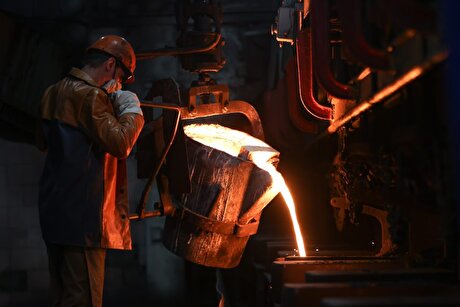
Brazil producers look to halt pig iron output as US tariff threat crimps demand
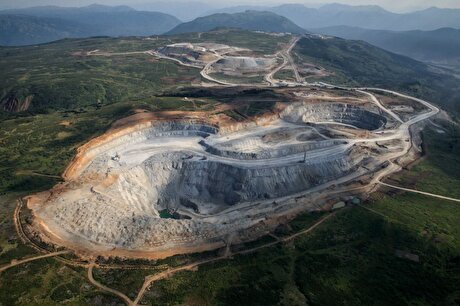
Three workers rescued after 60 hours trapped in Canada mine

Gold price could hit $4,000 by year-end, says Fidelity
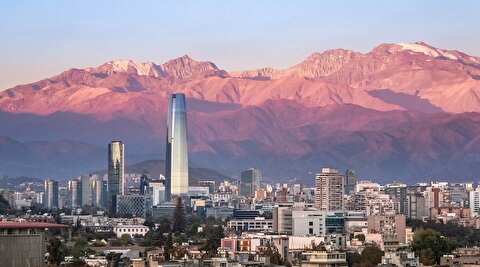
Chile’s 2025 vote puts mining sector’s future on the line
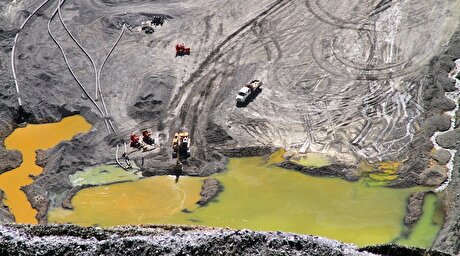
US targets mine waste to boost local critical minerals supply
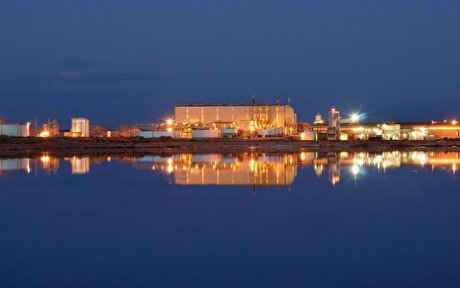
Energy Fuels surges to 3-year high as it begins heavy rare earth production
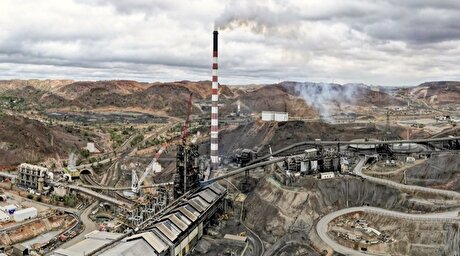
Glencore workers brace for layoffs on looming Mount Isa shutdown
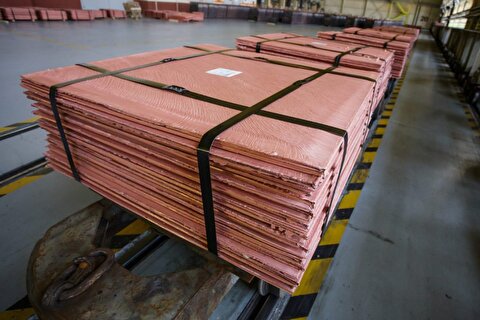
Trump tariff surprise triggers implosion of massive copper trade

Maxus expands land holdings at Quarry antimony project in British Columbia

BHP, Vale accused of ‘cheating’ UK law firm out of $1.7 billion in fees
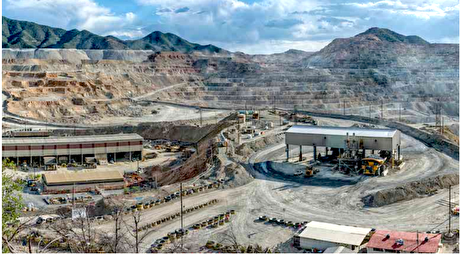
Southern Copper eyes $10.2B Mexico investment pending talks

American Tungsten gets site remediation plan approved for Ima mine in Idaho

Kinross divests entire 12% stake in Yukon-focused White Gold

Gold price could hit $4,000 by year-end, says Fidelity

Southern Copper expects turmoil from US-China trade war to hit copper

Ramaco Resources secures five year permit for Brook rare earth mine in Wyoming

Column: EU’s pledge for $250 billion of US energy imports is delusional

Trump tariff surprise triggers implosion of massive copper trade

Maxus expands land holdings at Quarry antimony project in British Columbia

BHP, Vale accused of ‘cheating’ UK law firm out of $1.7 billion in fees

Southern Copper eyes $10.2B Mexico investment pending talks

American Tungsten gets site remediation plan approved for Ima mine in Idaho

Kinross divests entire 12% stake in Yukon-focused White Gold

Gold price could hit $4,000 by year-end, says Fidelity

Southern Copper expects turmoil from US-China trade war to hit copper

Ramaco Resources secures five year permit for Brook rare earth mine in Wyoming














